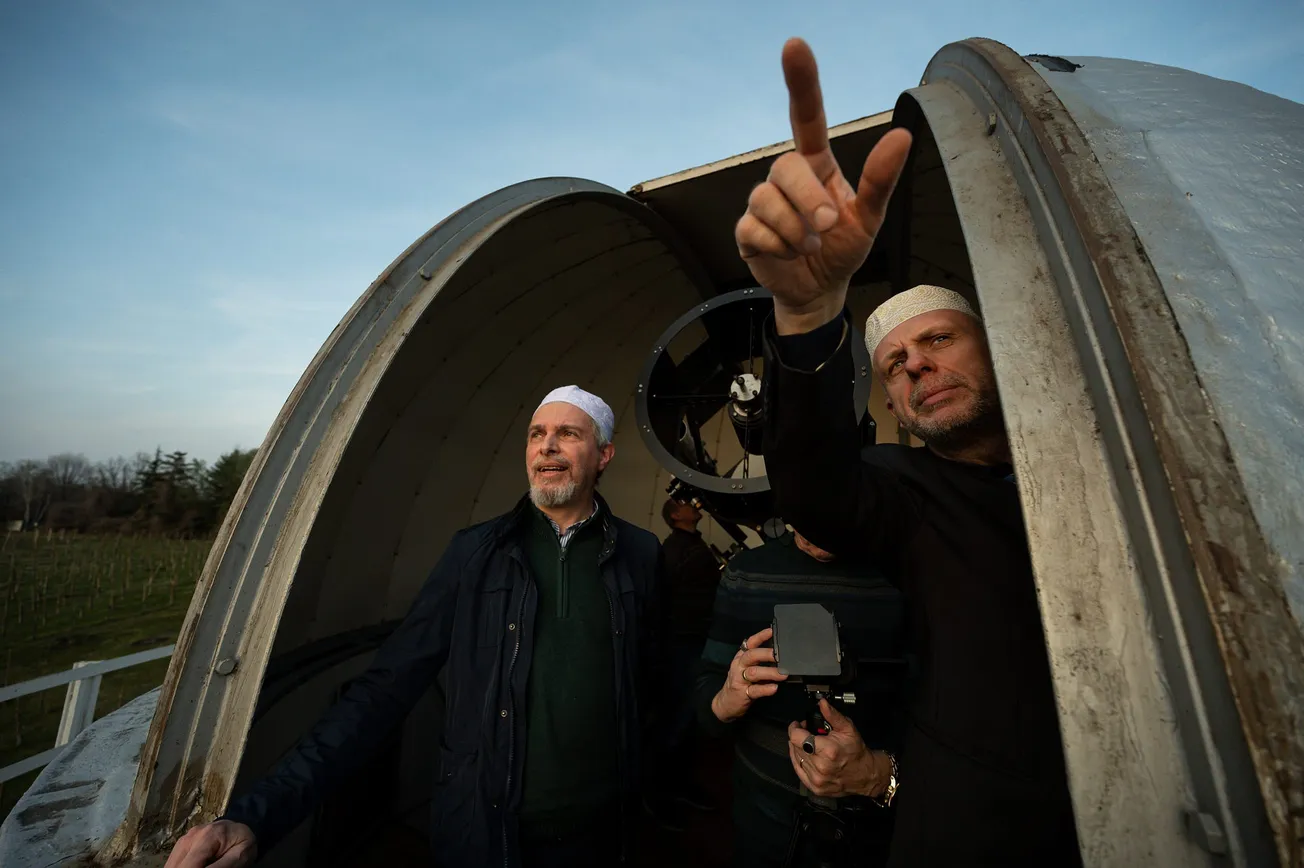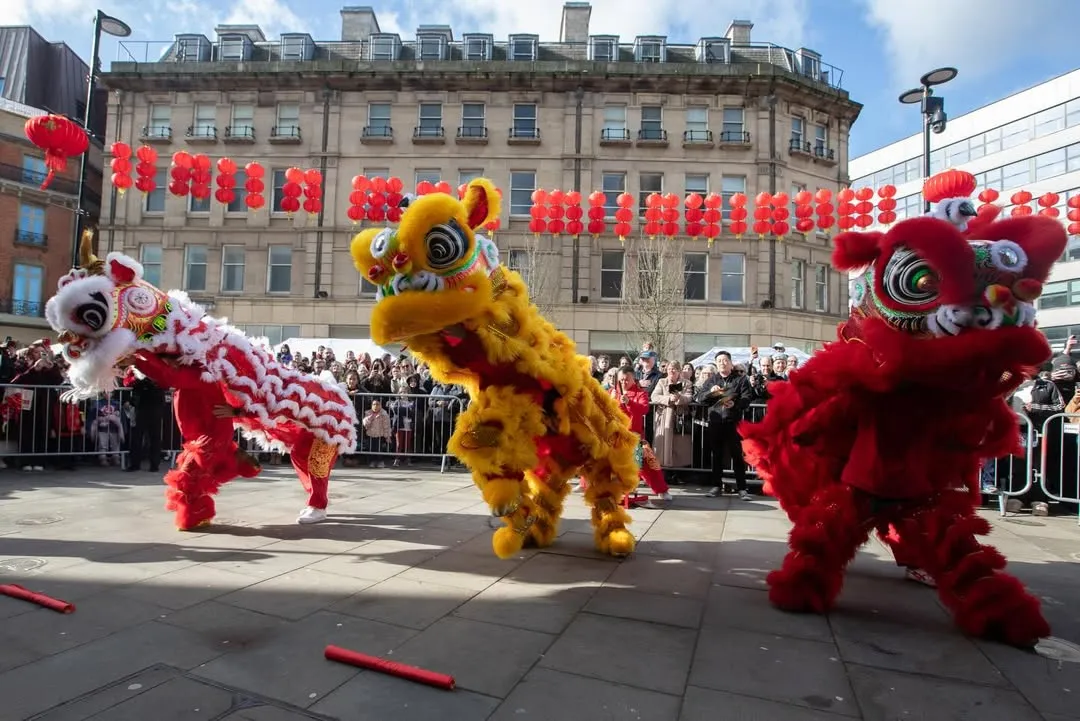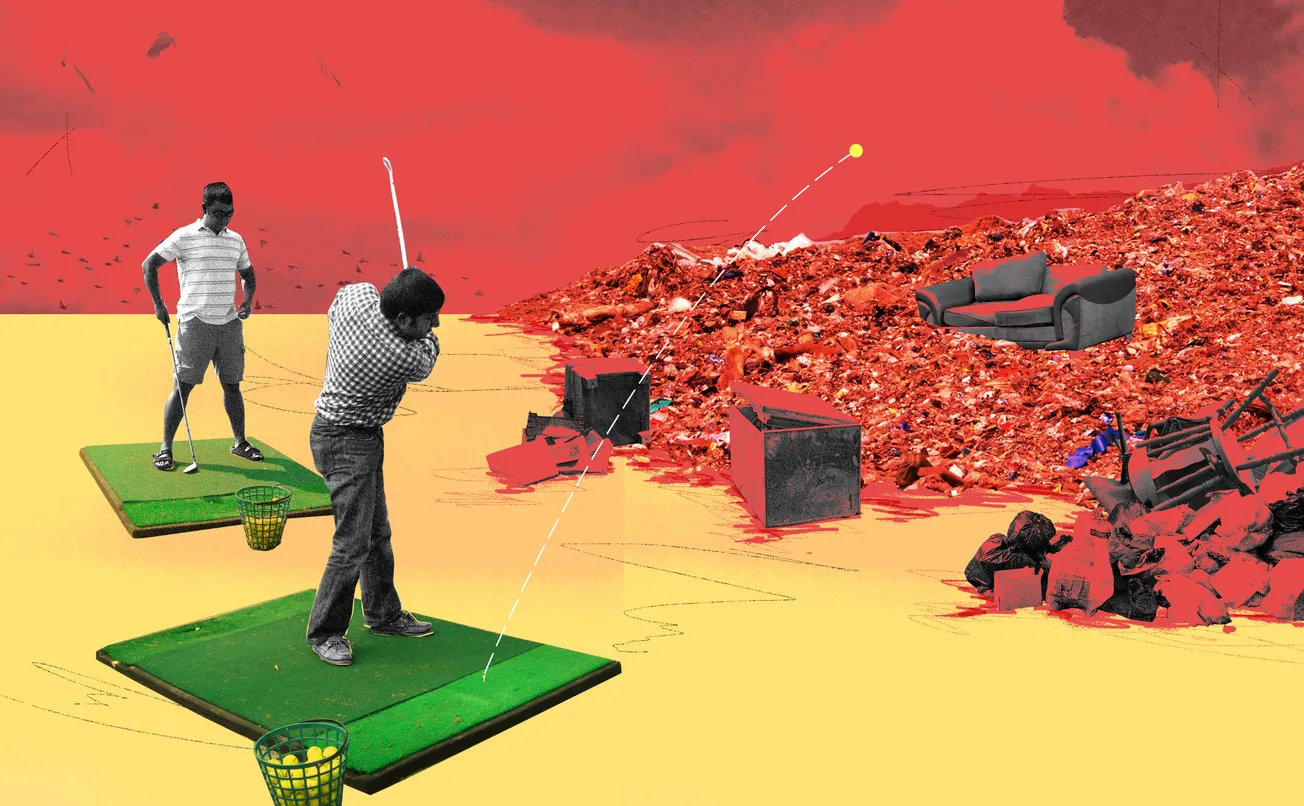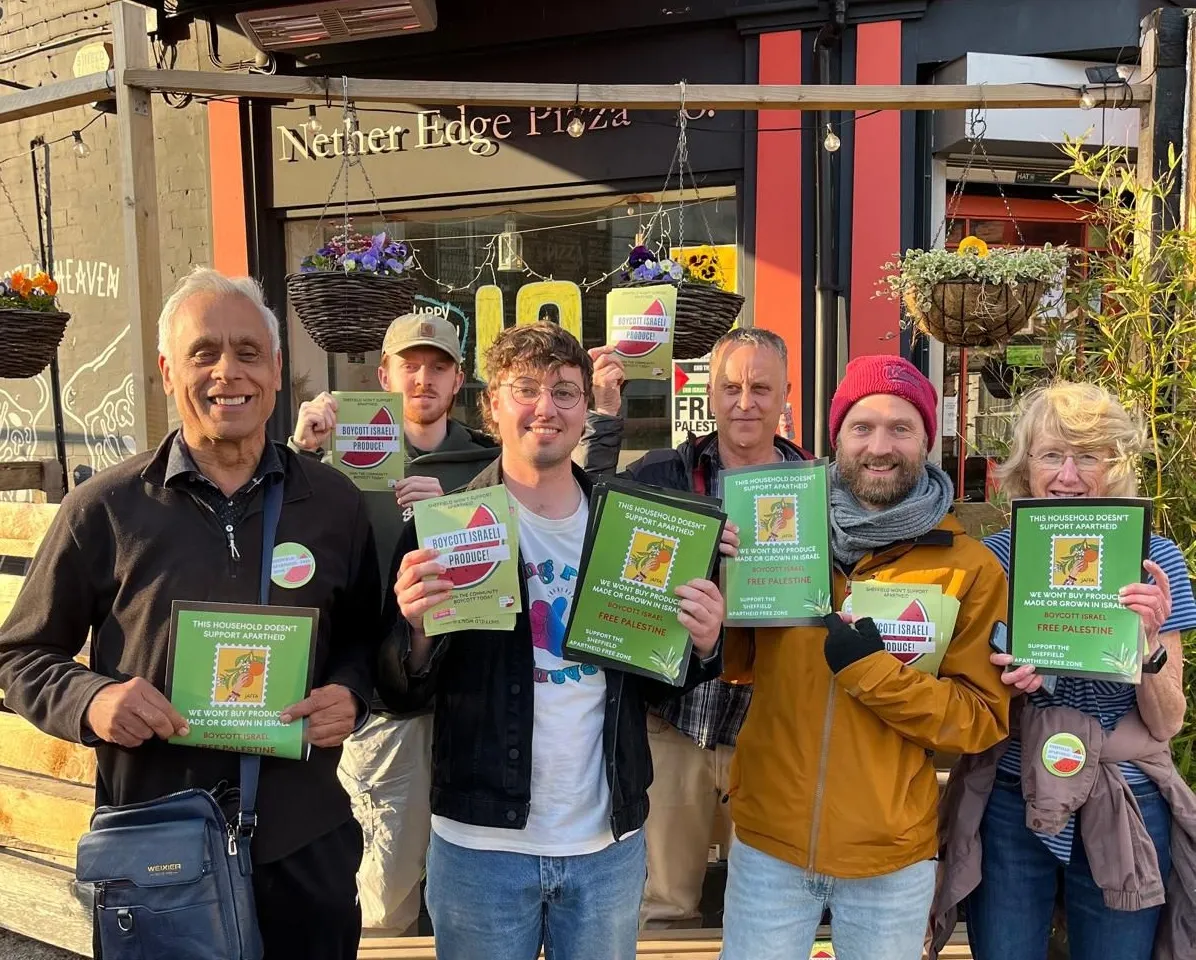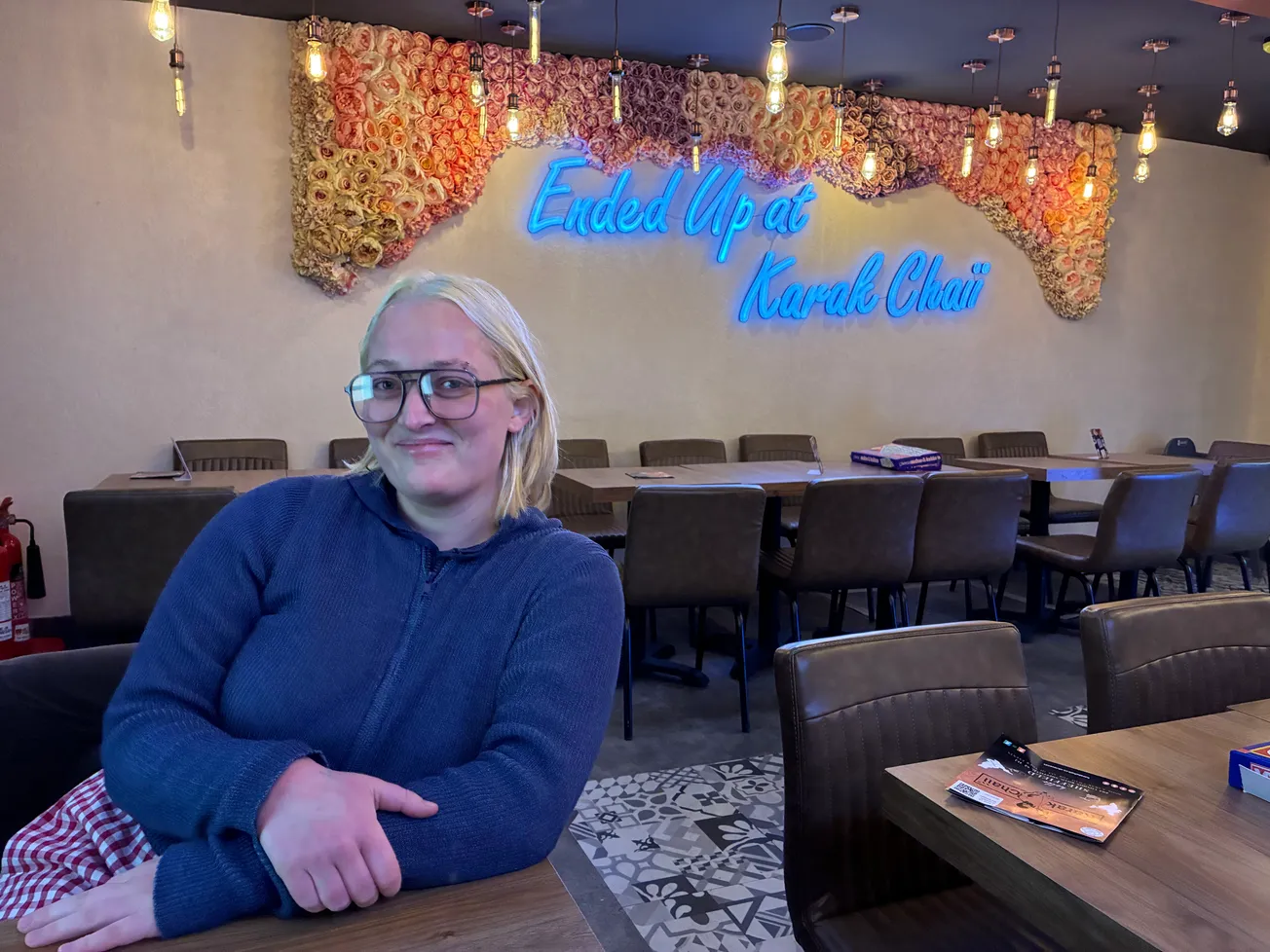The daylight fades as I climb the steep hill at High Hazels Park in Darnall. Dogs chase sticks and balls, kids play football. But as I walk further into the park I’m joined by more and more people making the same pilgrimage. We’re all heading to a high point which overlooks the whole of Sheffield. The best place to see the new crescent moon.
On the way here I didn't really know what to expect. An atmosphere of solemnity? Or would it have the feel of a scientific experiment? But when I arrive it feels more like a party. “Salaam alaikum” rings through the air as men and women greet each other and parents try to control their excited children with varying levels of success. A queue of people take turns to look through a telescope set up on a plastic storage box while others peer through pairs of binoculars strung around their necks. Everyone’s eyes are trained on a patch of sky to the west of our hillside, not far above the horizon and the tall buildings of Sheffield city centre.

We’ve got about 20 minutes to wait until the sun sets and the moon appears, a man in the crowd tells me as I gird myself against the cold spring air. “Inshallah,” he adds. God willing. In the meantime, the assembled masses fall silent for a maghrib prayer.
Earlier, as I arrive at the Madina Masjid on Wolseley Road, afternoon prayers are just finishing, so I sit down on a folding chair on the edge of the room. Below me a deep bluey-green carpet stretches out across the room with hundreds of golden arches stitched into the fabric. Each arch is an individual place for a prayer mat to be put down facing towards the front of the room — and Mecca. During busy times, every one of them is full, but this afternoon it’s just a small group huddled towards the front of the room.

After a few minutes I’m taken into the mosque’s main office to meet chairperson Shaheen Ahmed. He is pleased to see me, and interested as to why I’ve come along. I’ve come to learn about the countdown to Ramadan. As the Islamic calendar is based on the lunar cycle, each of the 12 months begin when a new crescent moon is sighted. If the moon is seen tonight, it will signify the holy month of Ramadan has begun, a period of fasting, prayer and reflection for the planet’s 1.9 billion Muslims.
The issue of moon sighting is a topic of some debate within the Islamic community in Britain, however. As there is no British religious authority that speaks for all Muslims — unlike the Archbishop of Canterbury or the Chief Rabbi — different parts of the country can choose their own methods for deciding when Ramadan has begun. Some follow Saudi Arabia, the location of Islam’s holiest sites of Mecca and Medina. Others follow Morocco, the nearest Islamic country to the UK. And others still rely on complicated calculations based on the study of astronomical charts.

But as well as whether to follow Saudi Arabia, Morocco or the star charts, another debate is raging in the Wolseley Road Mosque office: where is the best place in Sheffield to see the moon? The conventional wisdom seems to be to go to a high point in the city, but as we all know Sheffield is full of them. “Why don’t some of us go to Lodge Moor and some to Darnall,” one person suggests. Another suggests the hill overlooking the Gleadless valley. That way they can cover all the bases, they say.
In the past, splitting up might well have been the solution. But now a movement called the New Crescent Society is trying to unify British Muslims into making a collective declaration that Ramadan has begun in the UK. As it turns out, they’ve organised a special moon sighting event at High Hazels Park, and we set off in convoy to Darnall.

On the way, Ibrar Khan explains to me that in the past, maybe relying on the Saudi Arabian or Moroccan declaration of Ramadan was understandable. But now, with clever phone apps predicting when the moon will be seen and the ability to share information on moon sightings rapidly on social media, he says it makes more sense for the UK to do its own.
“Everything is possible now,” he tells me. “This can be a way of unifying Muslims living in this country to all begin Ramadan at the same time.” This is particularly important as a whole month of daylight fasting is gruelling and must end with the festival of Eid al-Fitr in exactly 29 days time.

But there is also more to it than merely synchronising celebrations. Those behind moon sighting events like this hope that declaring the beginning of Ramadan as a UK-wide community can have the effect of uniting British Muslims more closely. “There is a settled community in this country now,” Ibrar tells me. “Events like this really help bring us together.”
The High Hazels Park event has been organised by Sheffield teacher Azhara Miller. In between telling dozens of children where the sweets are, she says it’s the third time they’ve organised a moon sighting gathering, with numbers growing every year. “We had 30 the first time, 70 the second, and whatever this is this year,” she says as several sugared-up kids roll down the hill past us. I’ve never been that good at estimating the size of crowds but I reckon there are around 250 people here tonight.

And also there is Mohammed Ali, the former chair of the Pakistan Muslim Centre on Woodburn Road. I’ve met Mr Ali (as I always call him) before in my previous job at The Star, when I was doing a story about the first Muslim settlers in the city. Back in 1955, there were only around 400 Muslim residents in Sheffield, compared to the 57,000 who live here today. By 1958, the community had grown enough to require a mosque, with a semi-detached house on Industry Road in Darnall being turned into Sheffield’s first. What those early pioneers would have made of hundreds of Muslims praying and celebrating the start of Ramadan in a park just a stone’s throw from that mosque is anyone’s guess.
Mr Ali served as chair of the PMC for 22 years, but has recently passed the baton on to his successor. Up high on the hill it’s cold with a biting wind and Mr Ali has come dressed for the conditions — on the strict orders of his wife. “My mrs told me I had to wear them,” he tells me of the thick scarf and woolly hat he has wrapped around his head. “She said I’m not having you ill on the first day of Ramadan.”

With prayers over and the sun set, it’s now down to the main event. But it doesn’t look promising. A group of men call out compass directions to each other. “288 degrees west,” says one. “7.8 degrees from the horizon,” another replies. But all their complex calculations are a bit redundant compared to what our eyes can tell us. A thick bank of cloud is squatting ominously over Sheffield, in the exact place where the moon should be.
“That cloud isn’t helping at all,” says Shaheen Ahmed with deadpan comic timing. Sadly, the unpredictable South Yorkshire weather means the Muslims of Sheffield won’t be the ones spotting the new crescent moon this year.

Over the next few hours, however, reports and photographs of moon sightings will come in from as far afield as Dagenham in East London and Dundee in Scotland, confirming the beginning of Ramadan in the UK for the country’s 3.8 million Muslims.
As I walk back down the hill in the gathering gloom, I reflect on the event I’ve just been part of. As well as fasting, prayer and reflection, Ramadan is also a time for people from different backgrounds to pray, share a meal and become part of a worldwide community. I’m not a Muslim, but it was an undeniably moving experience to join hundreds of people, at one of the holiest times of the year, and gaze upon the heavens. Even if it was a cloudy night.
The Pakistan Muslim Centre will be hosting a community iftar (the meal with which the fast is broken) at 7pm on Sunday, 2 April at the Peace Gardens. Everyone is welcome.


